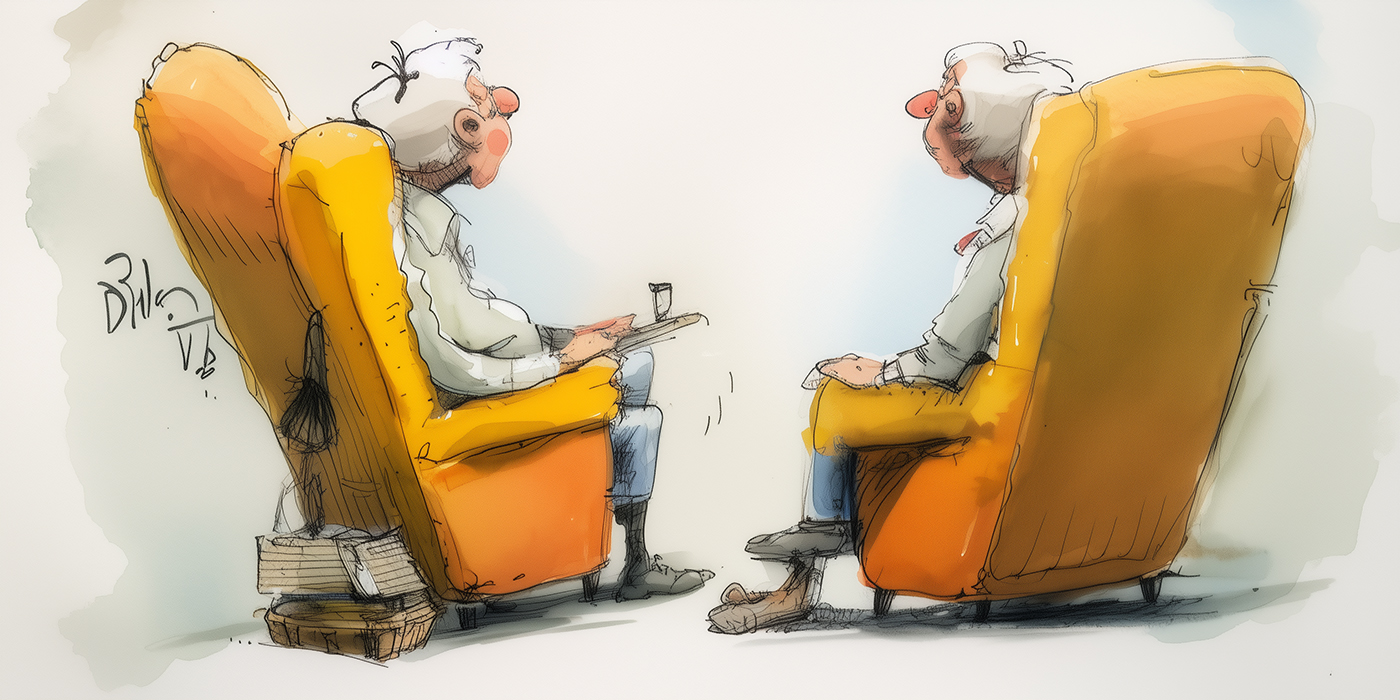Originally published in prison newsletter 2011, adapted for ESSAY by permission
As a sexaholic, I have a hard time dealing with life. I look at other people who seem to have it all together and wish somehow that my insides could look the way they look on the outside. Of course, I’m just kidding myself because I know that most people do not always look on the outside as they feel on the inside. When I was still active in my addiction, my capacity to deal with life’s ups and downs was severely impaired. I tried to smooth the bumps in the road by acting out. Psychologists call this “medicating,” and that’s exactly what acting out was for me.
Learning that “unless I can accept life completely on life’s terms I cannot be happy” (AA 417) has been an important tool on my road to recovery. This is not something I will ever get perfectly, because regardless of the power of recovery, I am still an imperfect being. However, the SA program of recovery helps me deal with life’s challenges.
I enjoy listening to speaker CDs (both AA and SA). I enjoy hearing people who have long-term recovery share their powerful stories of experience, strength, and hope. One of these speakers shared a story that was a moving metaphor for my own experience. He compared his inner self to a trash container. I could relate! I pictured Oscar the Grouch on Sesame Street—he’s a fitting example of me when I’m having a bad day! When I entered the program, my trash can was full to overflowing with all the old junk life had thrown at me. I was full of resentments, hurts, mishaps, and my own injuries toward others. I carried this mess around as a huge weight on my back. Whenever a problem came along, I had no way to get rid of it because my trash can was already full. I would try to cope by stuffing the new junk on top, but that never seemed to work. So I acted out.
That’s a pretty bleak image, but there is good news to follow. When I finally gave myself up to my Higher Power and to the SA program of action, I was able to take the trash out to the curb for pickup. In the first three Steps, I recognized that all of the mess I was carrying around was too much for me to handle on my own. I came to believe in a Higher Power who could take it away. In the Fourth Step, I put a name on all the junk and learned to recognize who was really responsible for it (most often I found that it was me). In the Fifth Step, I threw out this trash by admitting it to God and another human being. I learned that I could be forgiven.
As I worked the rest of the Steps, I gained a set of tools that helped me to identify the problems in my own character that create trash, and I learned how to avoid filling my trash can back up with the junk I create. Now, when life throws me a curve—a relative dies, a relationship ends, jobs are lost, health problems begin, etc.—I don’t have to carry around the “trash” anymore. I have a Higher Power to whom I can give it immediately, plus a supportive group of other sexaholics who will love me back to wholeness. Before, outside of my marriage I rarely had good friends who knew me well enough to really help me when I had problems. That was mostly because I was not open enough to allow them in.
When I was charged with a crime and facing a lengthy prison sentence, I was already participating in SA. My circumstances really freed me to take the plunge and surrender to SA. Even though I lost a tremendous amount of things, including relationships, possessions, and career potential, I gained something priceless in return.
Here in prison, I am no longer bound in the chains of addiction and I’m freer than I have ever been! I have the support of a number of true friends in SA. Their support has been unwavering and they continue to love me through what seems like one disaster after another. They visit, write, pray, and accept me for the imperfect man that I am. I had never experienced friendships like that before, and I’m overwhelmed with gratitude for them. I also have a new relationship with my Creator. I have placed my trust in His will for me and continue to learn how to seek it and act on it.
Things in the world—and here in prison—are not perfect, and they never will be. Learning to deal with life on life’s terms continues to be a major part of my work in recovery, and it likely always will be. But I know without a doubt that as I continue to work my SA program, and take the suggestions of those who have gone before me, I no longer have to be chained in the bondage to self that characterized my past. I am free to love my God and the people around me with my whole heart, knowing that I can get through whatever life may bring.
I particularly like Bill W.’s thoughts related to “real maturity”: “I think that many oldsters who have put our AA “booze cure” to severe but successful tests still find they often lack emotional sobriety. Perhaps this will be the spearhead for the next major development in AA—the development of real maturity and balance (which is to say, humility) in our relations with ourselves, with our fellows, and with God” (“The Next Frontier: Emotional Sobriety,” AA Grapevine, January 1958).
Chris C.






